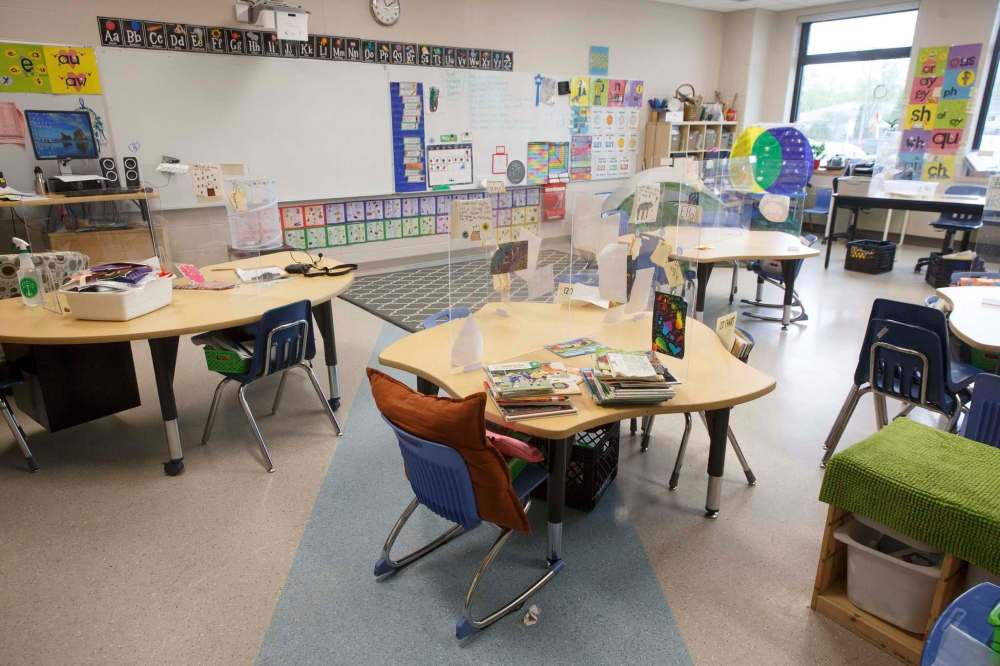Lessons in COVID comprehension
Educators equip students with vaccine knowledge
Advertisement
Read this article for free:
or
Already have an account? Log in here »
To continue reading, please subscribe:
Monthly Digital Subscription
$1 per week for 24 weeks*
- Enjoy unlimited reading on winnipegfreepress.com
- Read the E-Edition, our digital replica newspaper
- Access News Break, our award-winning app
- Play interactive puzzles
*Billed as $4.00 plus GST every four weeks. After 24 weeks, price increases to the regular rate of $19.00 plus GST every four weeks. Offer available to new and qualified returning subscribers only. Cancel any time.
Monthly Digital Subscription
$4.75/week*
- Enjoy unlimited reading on winnipegfreepress.com
- Read the E-Edition, our digital replica newspaper
- Access News Break, our award-winning app
- Play interactive puzzles
*Billed as $19 plus GST every four weeks. Cancel any time.
To continue reading, please subscribe:
Add Winnipeg Free Press access to your Brandon Sun subscription for only
$1 for the first 4 weeks*
*$1 will be added to your next bill. After your 4 weeks access is complete your rate will increase by $0.00 a X percent off the regular rate.
Read unlimited articles for free today:
or
Already have an account? Log in here »
Hey there, time traveller!
This article was published 21/05/2021 (1570 days ago), so information in it may no longer be current.
Drawing from public health information about the COVID-19 immunization campaign, teachers are doing what they do best — teaching, on the subject of vaccine hesitancy and scientific literacy.
Many educators give students accurate information about the vaccine during casual conversations and lessons about health, science and media literacy.
One Winnipeg teacher livestreamed his immunization appointment to students to walk them through the process and provide factual information about it. Mark Dewar has also helped students who want to sign up for an appointment, navigate the process.

“We’re constantly talking about current events and what’s been going on in the world — and what’s been king in the last year has been COVID,” said Dewar, who teaches high schoolers.
Late last week, the province sent school divisions and independent schools a letter penned by Dr. Joss Reimer, medical lead of the vaccine task force, about the expanded criteria for the Pfizer-BioNtech vaccine. The letter, which was provided in English and French, indicates anyone aged 12 and older can book an appointment, and it outlines how to do so.
“This is an important milestone in Manitoba’s COVID-19 immunization campaign. We look forward to seeing you and your family at an immunization clinic soon,” Reimer wrote.
She assured families the vaccine has been tested and found to be both safe and effective for youth by Health Canada. Noting the presence of highly contagious variants, broad community transmission and high case counts, as well as more serious illness in younger people during this third wave, she recommended immunization as the best form of protection.
There’s no doubt the latest wave has been especially difficult on school communities, with rising cases among students and staff, said Brian O’Leary, superintendent of Seven Oaks School Division.
Transmission in cohorts has been more common in the third wave, O’Leary said, noting there was one point in recent weeks where 18 staff members in a Seven Oaks school were either quarantining at home or teaching remotely because of a classroom exposure.
He said the division recently worked with public health to put together a circular on vaccines.
Teachers in the Louis Riel School Division have reported sharing information about vaccines and eligibility with their students, although no divisional directives have been issued regarding discussing vaccines in class to date — as has been the case in most divisions.
“We have not sent any divisional directive to our schools about discussing vaccinations in class, however, that’s not to say this or other topics surrounding the pandemic aren’t discussed,” said Amanda Gaudes, senior communications co-ordinator for the River East Transcona School Division, in an email.
A provincial spokesperson said Manitoba is putting together a broader communications plan for vaccines that is inclusive of all ages.
Meantime, youth can get a jab at either a super site or urban Indigenous clinic. Saskatchewan has announced schools will host pop-up immunization clinics next month, but Manitoba continues to tout super sites as the most effective model for getting needles into arms.
Citing new reports that the Pfizer vaccine can be stored at warmer temperatures than first believed, it may be viable for divisions to host vaccination sites in Manitoba, said Christian Michalik, superintendent in Louis Riel. Michalik said the division plans to explore the option.
maggie.macintosh@freepress.mb.ca
Twitter: @macintoshmaggie

Maggie Macintosh
Education reporter
Maggie Macintosh reports on education for the Free Press. Originally from Hamilton, Ont., she first reported for the Free Press in 2017. Read more about Maggie.
Funding for the Free Press education reporter comes from the Government of Canada through the Local Journalism Initiative.
Every piece of reporting Maggie produces is reviewed by an editing team before it is posted online or published in print — part of the Free Press‘s tradition, since 1872, of producing reliable independent journalism. Read more about Free Press’s history and mandate, and learn how our newsroom operates.
Our newsroom depends on a growing audience of readers to power our journalism. If you are not a paid reader, please consider becoming a subscriber.
Our newsroom depends on its audience of readers to power our journalism. Thank you for your support.
History
Updated on Friday, May 21, 2021 6:27 AM CDT: Adds photo


